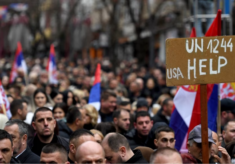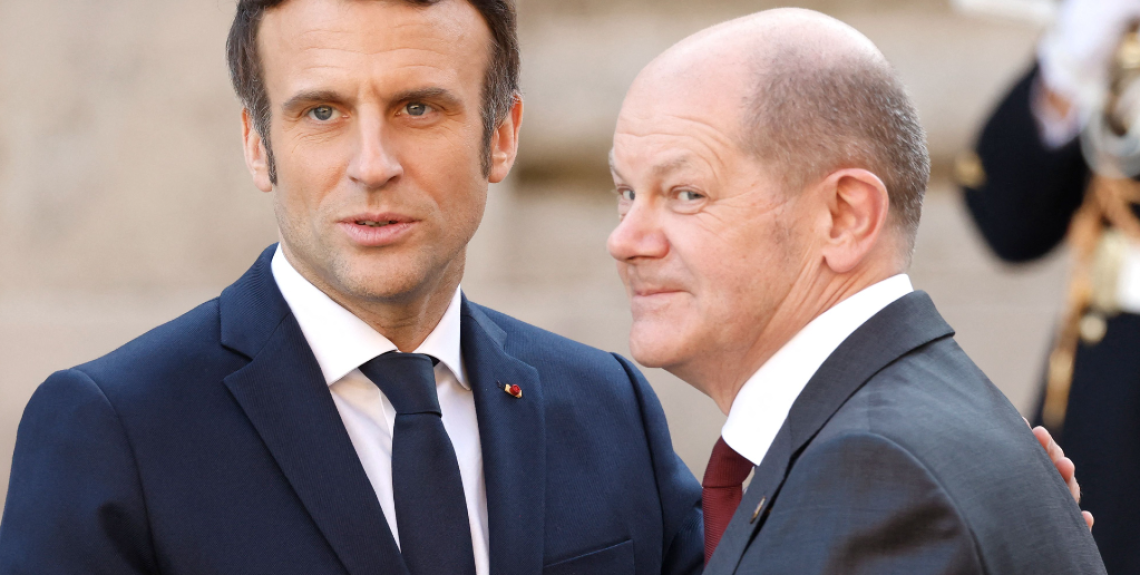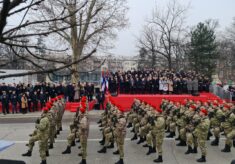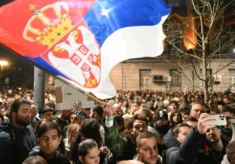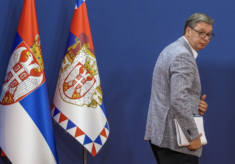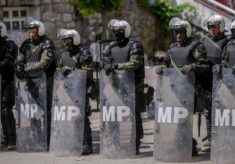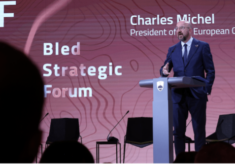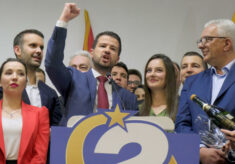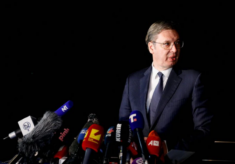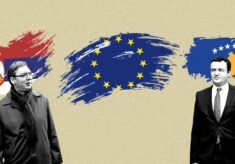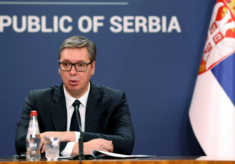After a decade of failed negotiations facilitated by Brussels, Germany and France took an active role in the dialogue between Serbia and Kosovo, with the apparent goal of pressuring Belgrade and Pristina to reach a final agreement, if possible, in the coming months.
German Chancellor Olaf Scholz and French President Emmanuel Macron tasked their advisers for foreign and security policy, Germany’s Jens Plettner and France’s Emmanuel Bonn, “to provide direct support to Miroslav Lajcak in his efforts.” Lajcak is tasked by the EU to mediate between Kosovo and Serbia and to facilitate the dialogue. Both Serbian President Aleksandar Vucic and Kosovo Prime Minister Albin Kurti were informed of the appointment of the German and French envoys at the beginning of September. In a letter, Scholz and Macron noted that European Union and the Balkans, in the light of the Russian aggression against Ukraine, are “at a moment of crucial importance for security” and “stability.”
“The full normalisation of relations between Kosovo and Serbia is of essential importance for the Western Balkans,” Germany and France said, asking both Vucic and Kurti to “show maximum determination and readiness to make difficult decisions, which lead to progress in the dialogue between Kosovo and Serbia, under the auspices of the EU.” “Recent tensions have shown that constructive steps forward are urgently needed, both on a practical and a political level,” Scholz and Macron added.
“The representatives of the most powerful European countries, who told us they also have the support of the United States and Turkey, consider that given there is already a war in Europe there is no need for new conflicts and it is important to reach a solution as quickly as possible”, Vucic confirmed after meeting the two envoys in Belgrade. Vucic suggested that the solution proposed by Berlin and France would include “the recognition” of what the West “considers as reality”, i.e., the independence of Kosovo. Serbia has repeatedly stated that Belgrade will never recognise Pristina’s independence. Meanwhile, tensions continue to simmer in the Serb-majority north of Kosovo over reciprocal measures on car plates laid down by Prime Minister Albin Kurti.
Vucic also mentioned the existence of a “new framework” for the dialogue with Pristina, proposed by Germany and France, without further elaborating. However, a document leaked by Albanian media in September suggested the scenario of Serbia and Kosovo agreeing on a long-term plan for the normalization of their relations. The unofficial document suggested the idea of two Germanies-alike solution, with both parties normalizing their relations, without official mutual recognition. After a first agreement, by mid-2023, Serbia would de facto recognize the existence of Kosovo, without a formal recognition. On the other hand, Kosovo would be recognized by the five EU members still not accepting its independence, paving the way in the next decade to the entry of Pristina in several international organizations, such as Interpol, Unesco and the Council of Europe. In exchange, Serbia would get significant economic assistance from the EU. After ten years, the initial agreement would be reassessed and only after a formal mutual recognition both countries will have the doors to the EU membership open.
Although the leaked proposal remains unofficial and its existence was denied by the EU and other actors, the framework doesn’t look unrealistic. West and East Germany never recognized each other” but “both were equal members of the international community,” said German diplomat Wolfgang Ischinger, among the first in 2007 to put on the table the two-Germanies model as a viable solution for the Kosovo issue. It remains to be seen how Serbia and Kosovo will act in the next months, but the fact that Germany and France got directly involved in the dialogue suggests that the Kosovo issue is now one of the top priorities in Europe.
